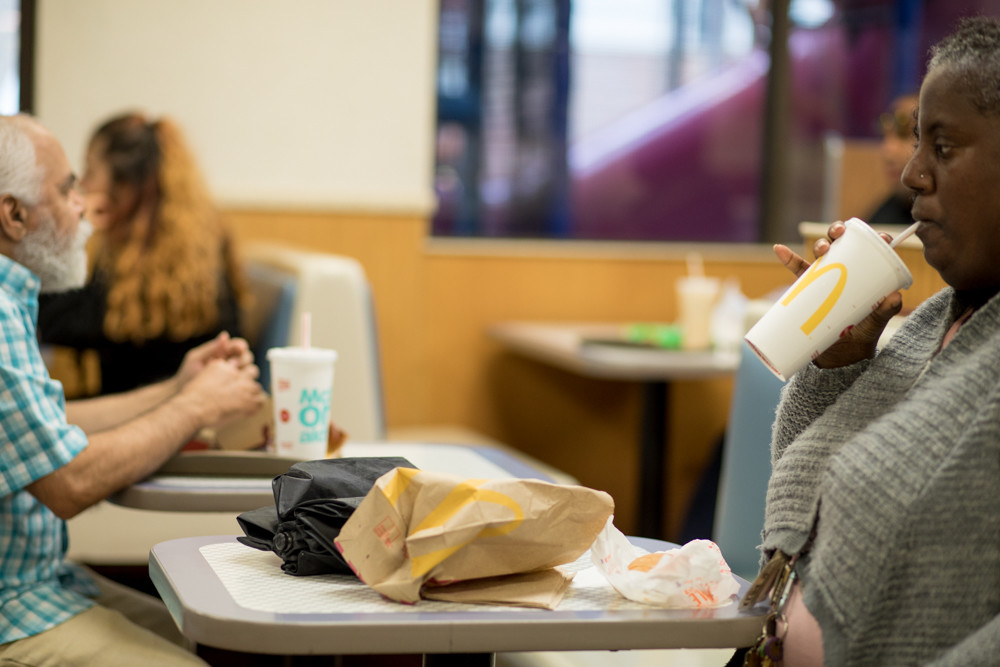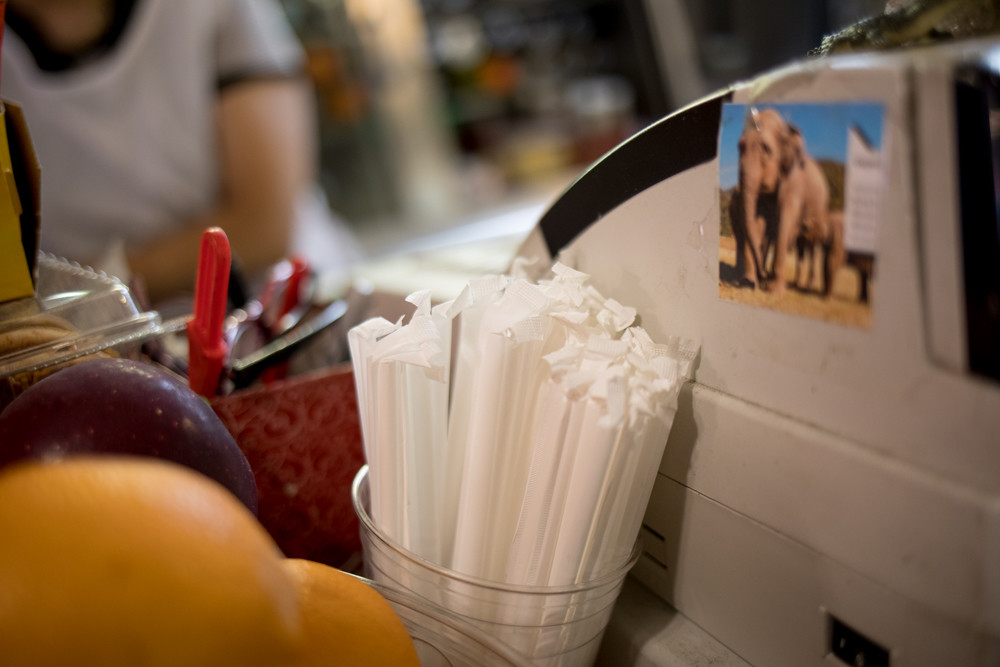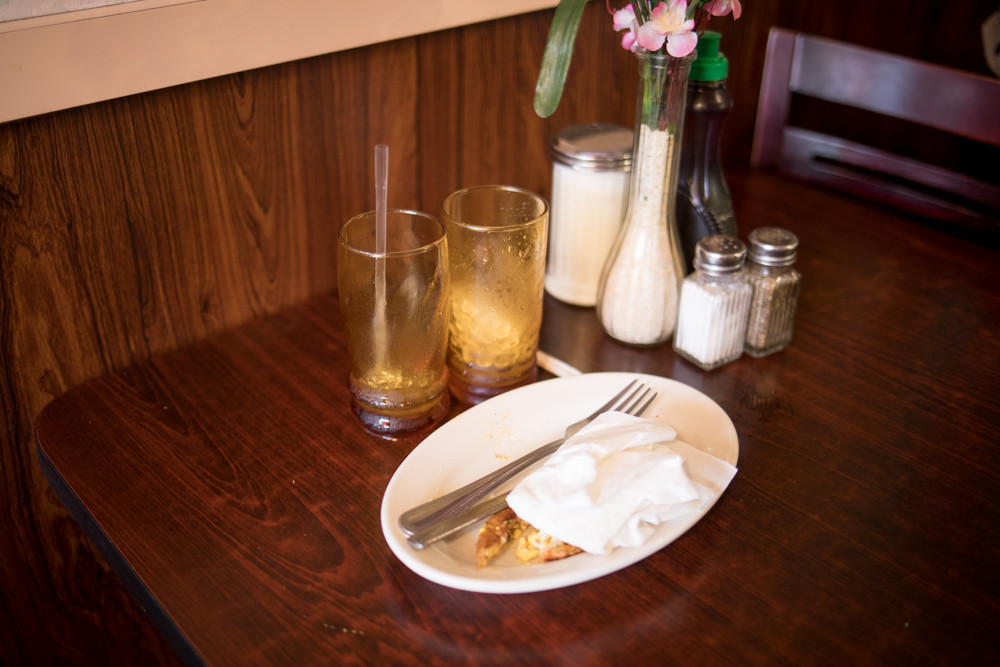Plastic sippers are the last straw for environmentalists
Tequila, fresh lime, agave, salt, rocks …
As the dog days of summer approach, the thirsty may soon find themselves sipping their margaritas — and iced lattes, tea and soda — out of a different kind of straw.
It’s not just single-use plastic bags some environmentalists are after. They’re targeting plastic straws, too.
And they’re not alone. Brooklyn Councilman Rafael Espinal introduced a bill last month that would ban single-use plastic straws in the city’s eating and drinking establishments, with certain exceptions for those with disabilities.
Perhaps it shouldn’t come as a surprise plastic straw litter is prolific, given some 500 million of them are used and discarded each day in the United States, according to National Geographic, with an estimated 8 million metric tons of plastic pollution finding their way to the oceans each year.
“What’s most frightening is that by 2050, it’s estimated that there will be more plastic in the ocean than fish by weight,” said John Calvelli, executive vice president of public affairs for the Wildlife Conservation Society. His organization launched the “Give A Sip” campaign supporting Espinal’s bill, convincing more than 130 city restaurants to sign on.
“Over 70 percent of birds and about 30 percent of turtles actually have plastics in their stomachs, which is, in the end, oftentimes fatal to these animals,” Calvelli said. “What are we doing to biodiversity? What are we doing to our environment?”
Jessica Haller, who serves on the Riverdale Nature Preservancy board, said all efforts to reduce plastic waste are “worthy.”
“Policies need to be created to nudge people away from things that aren’t great for them, or for everyone,” Haller said. Banning plastic straws “doesn’t hurt anybody. It’s not a huge intrusion. Until we really figure out what to do with (plastic), we shouldn’t make any more.”
Yet, affecting true change requires a multifaceted approach, Haller said — and economic incentive.
“Do I need to charge you a nickel to remind you either to recycle it at the store, to get the refund,” as with plastic soda bottles, “or that maybe you shouldn’t be buying plastic to begin with?” Haller asked. “You need policy to step in and remind people that we need to change these behaviors.”
Ryan Elivo called Espinal’s bill “sensible.”
“Petrochemicals are the greatest challenge of our time after climate change, and the case for banning single-use plastics is irrefutable,” said the Kingsbridge resident, who happens to hold a degree in sustainable development.
Plastic can take up to 1,000 years to decompose, Elivo added.
“The vast majority of plastic, since the advent of petrochemicals, has not been recycled, and plastic bioaccumulates up the food chain,” Elivo said. “While outright bans should only be implemented as a last resort, the cost of inaction is much greater.”
If the bill passes, the ban would take two years to go into effect. After that, any establishment serving a drink with a plastic straw or stirrer would face a $100 fine.
“I would argue that this provides eateries plenty of time to plan accordingly,” Elivo said.
But some owners — and eaters — in this part of the Bronx don’t seem to be all that worried.
Right direction
In fact, Josue Guerrero, who runs Yohan’s Deli and Grocery in North Riverdale, sees getting rid of single-use plastic straws and bags as a step in the right direction.
“For me it’s positive to eliminate” them, Guerrero said in Spanish, because so many of his customers mindlessly toss their bags and straws onto the sidewalk, ignoring garbage bins a few steps away. “That isn’t right.”
As far as business is concerned, straw or no straw, customers drink their beverage either way, Guerrero said. “It wouldn’t affect anything.”
At least one North Riverdale proprietor sees it differently, however.
“I don’t think it’s right,” said Ruth Tzanetatos, owner of Noni’s Coffee Shop, down the street from Yohan’s. “Sometimes I do want to have a straw, like for milk or juice,” or sucking in liquid quickly when swallowing a pill. “That’s the easier way.”
Her customers wouldn’t be happy either. “Lately, everybody wants a straw,” Tzanetatos said, adding she’s skeptical of paper and other alternatives.
‘Everyone wants a straw’
Meanwhile, at McDonald’s on Broadway near West 238th Street, employees scrambled to keep up with a post-lunch rush last week, frantically stuffing French fries into Happy Meal bags, while customers slurped down soft drinks through plastic straws — a luxury they’ve come to expect, said manager Annayvette Chevere.
“Everybody wants a straw for their drink,” Chevere said. “Especially when they’re driving.”
But banning the plastic variety wouldn’t put a damper on business, Chevere said, provided there’s a viable alternative. One of those options could come in the form of paper straws, something the corporate side of McDonald’s have contemplated in recent months.
But even if plastic straws were to disappear from the fast food chain, Marble Hill resident Jennifer Fuentes said she’d still come back.
“I’ll keep eating at McDonald’s,” Fuentes said. And would paper straws bother her? “Not at all — as long as I can drink my drink.”
In fact, Fuentes supports a ban on single-use plastic in general, replacing it with alternatives that leave a smaller carbon footprint.
“I know that it hurts the environment,” she said.
As Calvelli sees it, it’s time to think about lasting solutions.
“People say, ‘How could straws have an impact?’ But the impact is actually significant,” Calvelli said.
One of the top-10 types of plastic waste found on beaches, for example, are straws.
“And these things have been blown in, (and) blow out to sea.”
New York’s recycling facilities process around 800 tons of material daily, Calvelli said. But plastic straws are too small, meaning they’ll likely end up in landfill, or worse, parts unknown.
“This is one of those things that we can resolve,” Calvelli said. “The good thing about straws is there are many, many options,” — not just paper, but also aluminum and steel.
“The most obvious option is, don’t use a straw. People realize, once you tell them the story, on their own, that this is something that they can actually help make a difference and be a hero for the environment.”











